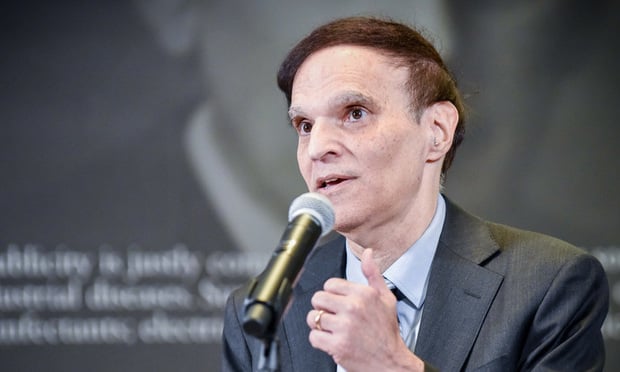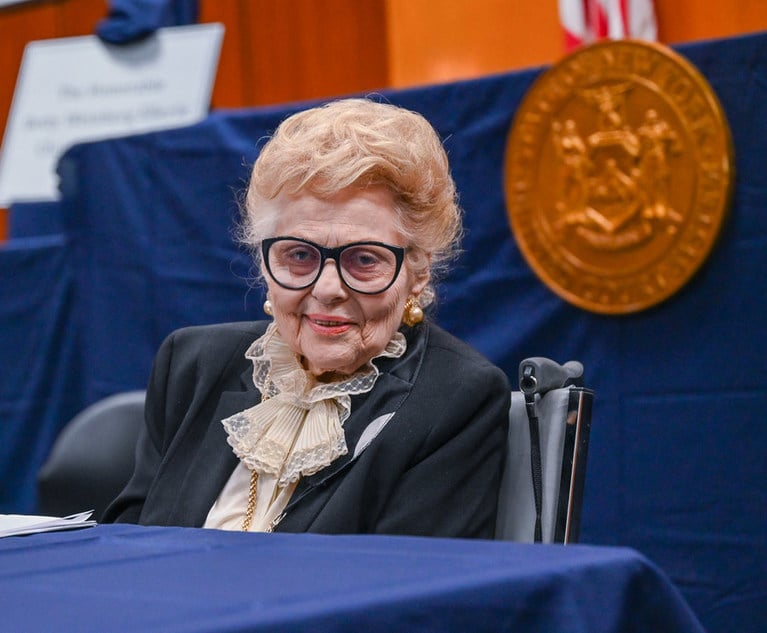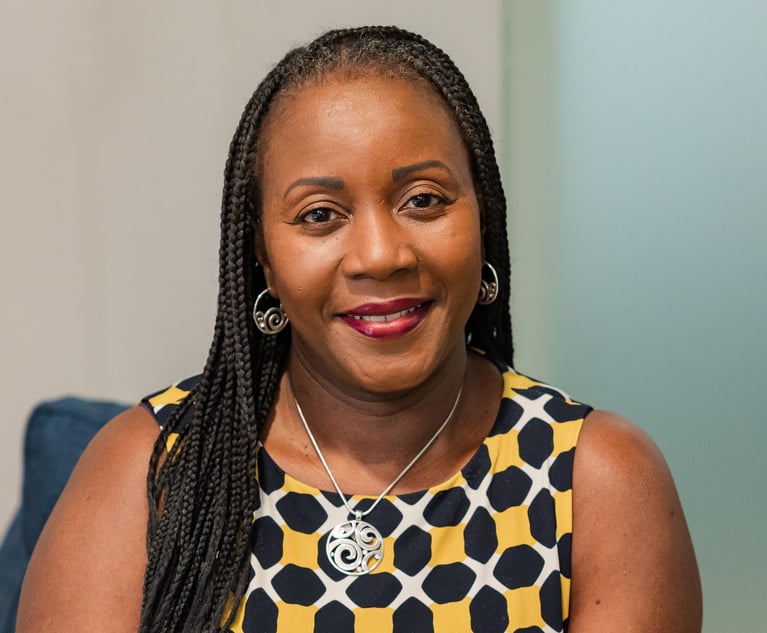In the midst of the largest disruption to American life in generations, the U.S. Court of Appeals for the Second Circuit on Thursday did something it had never done before.
Just after 10 a.m., Chief Judge Robert A. Katzmann opened the court’s oral argument session with a brief message to attorneys and other observers, who separately huddled around smartphones and computers to listen as the court conducted its business.
“We are, in deference to public health authorities and other government authorities, conducting this court proceeding” remotely, he said, “so that all can hear our proceedings through audio.”
The first-of-its-kind hearing unfolded as confirmed cases of the novel coronavirus rapidly eclipsed the 10,000 mark across the country. In New York alone, officials on Thursday morning reported more than 4,150 infections and 21 deaths resulting from COVID-19, the respiratory illness caused by the new virus.
It was against an uncertain and chaotic backdrop that Katzmann on Monday ordered the Second Circuit’s Lower Manhattan courthouse closed to the public, and announced the court would be suspending its long-standing tradition of hearing in-person appeals. For the first time, he said, oral arguments would instead be livestreamed to the Second Circuit’s website to ensure that the public would have access to the court’s proceedings.
“We’ve got the technological capabilities to make sure our arguments go on as scheduled,” Katzmann told the New York Law Journal on Monday. “We have no plans to shut down for business.”
According to an new order entered Thursday afternoon, the changes would remain in place for the duration of the COVID-19 crisis, and parties wishing to appear would be required to do so through the court’s teleconferencing system.
Katzmann was joined Thursday morning by U.S. Circuit Judge Michael Park and Senior Judge Richard Wesley to hear appeals in three cases—disputes that involved a dental kickback scheme, an insider-trading prosecution and a lien that an attorney had entered against his client’s settlement award.
All three judges participated from locations outside the courthouse, and Courtroom 1703 sat empty. Katzmann donned a jacket and tie as he presided, but did not wear his robe, he told the Law Journal.
The arguments, which unfolded over the course of approximately 100 minutes, largely resembled typical proceedings held before the Second Circuit, though there were moments that highlighted what Katzmann later called the “maiden-voyage” nature of Thursday’s proceedings.
At one point, emergency sirens echoed in the background. Microphones at times picked up the turning of pages, the pinging of a cellphone alarm and possibly even some typing on a computer.
Absent the visual cues inherent with face-to-face interactions, attorneys and judges sometimes talked over one another without meaning to.
“Sorry, I didn’t mean to cut you off, your honor,” Sutton Sachs Meyer partner Zachary Meyer said after inadvertently interrupting a question from Wesley.
“No, go ahead and finish your thought,” the judge responded. “This is inartful for both of us, so don’t worry. This is tough for both of us, but these are the times we’re in.”
In the end, the panel adjourned having reserved decision in all three cases. The court would consider the day’s other two appeals on submission.
Katzmann said in an interview that the court would continue to work out some of the minor kinks on display at Thursday’s arguments, but he said, “it was orderly,” and “everyone was able to say what they needed to say.”
“It isn’t perfect, but I think it works pretty well under the circumstances,” Katzmann said.
As Katzmann mulled the use of technology, city, state and federal leaders were grappling with what public safety measure would best combat the pandemic.
For instance, early this week, Gov. Andrew Cuomo and New York City Mayor Bill de Blasio publicly debated whether to issue a “shelter-in-place” order for New York City, which would ban all nonessential travel and potentially close off portions the nation’s most populated city. De Blasio had said he was considering the extraordinary measure, but Cuomo adamantly opposed the idea, saying that it could incite panic and possibly spread the virus to surrounding counties and states.
Meanwhile, the federal government grappled with wide-ranging economic implications that were expected to last for years. State and federal trial courts had delayed new civil and criminal trials, and most people appeared to heed the advice of government and public health officials to remain in their homes.
Katzmann said that the growing uncertainty surrounding the virus and the government’s response only underscored the need to “preserve our history of open proceedings” in tumultuous times.
“I think that each of us in the judiciary is committed to ensuring that there are fora for disputes to be resolved peacefully, and the public looks to us to be able to do that,” he said. “Especially in times of crisis, the functioning of an independent judiciary is all the more important, and all the more reassuring, to the public.”
Read More:
2nd Circuit Remains Open, With Restrictions, Amid Coronavirus Outbreak
NY State Courts to End ‘Nonessential’ Services in Coronavirus Response
Citing Coronavirus, Advocates Call for Release of Aging and Medically Vulnerable Inmates
SDNY Courthouse Restricts Visitors, 2 Manhattan Family Courtrooms Close, in Responses to Coronavirus
NOT FOR REPRINT
© 2024 ALM Global, LLC, All Rights Reserved. Request academic re-use from www.copyright.com. All other uses, submit a request to [email protected]. For more information visit Asset & Logo Licensing.


 Robert Katzmann, chief U.S. circuit judge of the U.S. Court of Appeals for the Second Circuit (Photo by David Handschuh/NYLJ)
Robert Katzmann, chief U.S. circuit judge of the U.S. Court of Appeals for the Second Circuit (Photo by David Handschuh/NYLJ)






